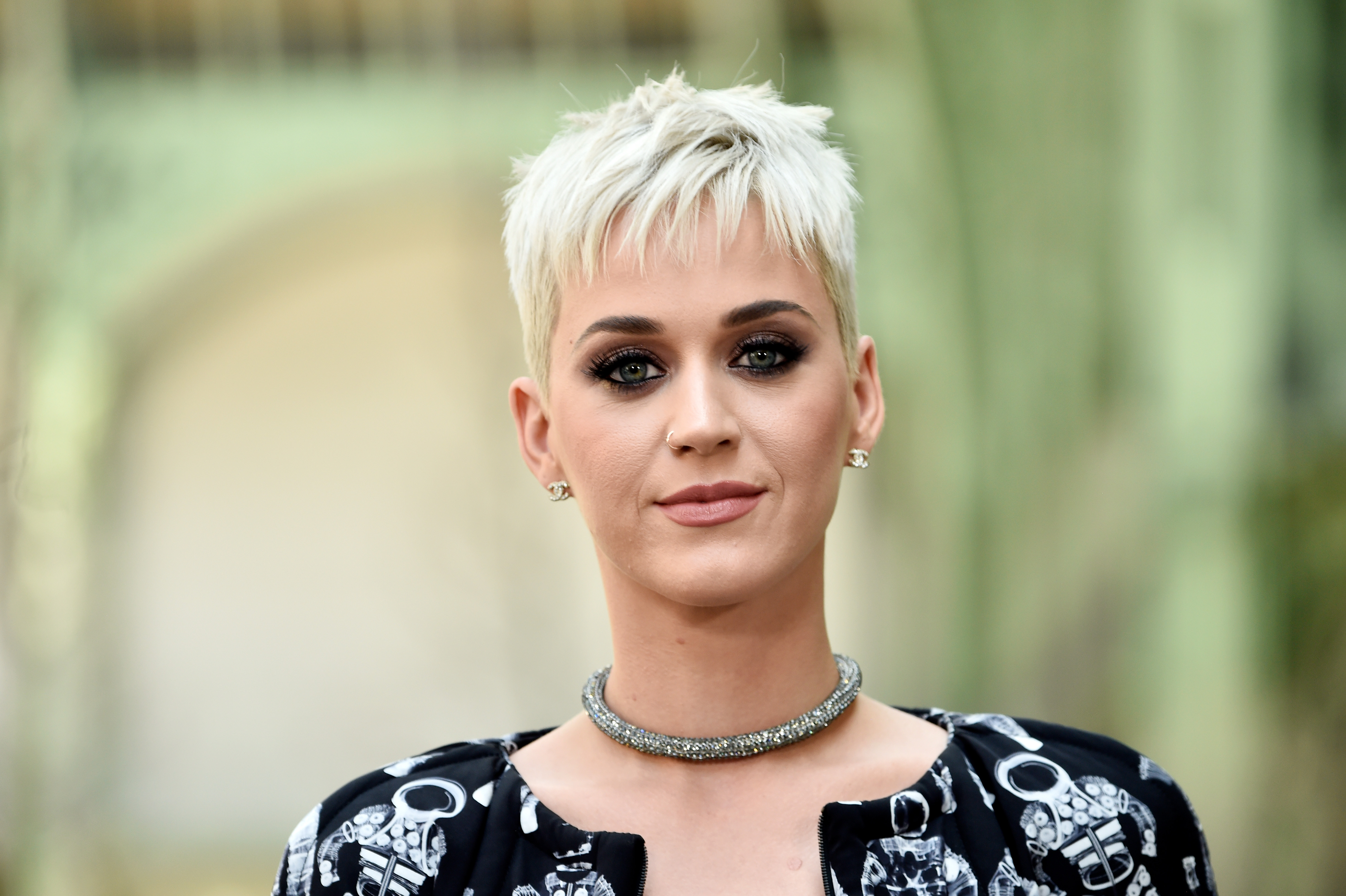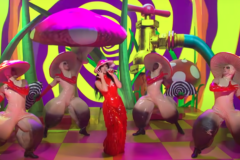Jurors will decide how much Katy Perry’s 2013 mega-hit “Dark Horse” is worth and how much of that money should go to a Christian rapper whose song they already said the pop star copied.
Attorneys for the two sides gave the jury wildly different figures to work with during closing arguments Thursday, the latest copyright infringement case against a major hit song.
Lawyers for rapper Marcus Gray and his two co-writers on the 2009 song “Joyful Noise” told the jury they should get nearly $20 million from the Perry song that grossed about $41 million. Defense attorneys argued for about $360,000.
“These defendants have made millions and millions of dollars from their infringement of the plaintiff’s copyright,” Gray’s attorney, Michael A. Kahn, told the jury. “They seek a fair portion of the defendants’ profits. Not all of them.”
Both sides agree that Perry herself made a profit of $2.4 million, which would be the maximum she may have to pay personally. The pop star testified at the beginning of the trial but has not been in court since.
Because the rhythmic instrumental riff from “Joyful Noise” plays through 45% of “Dark Horse,” Kahn said his clients were entitled to 45% of the entire earnings of Perry’s album “Prism,” where her song appears.
The defense recommends dividing the award money by the number of songs on the album.
“A CD is a CD, you can’t break it into pieces,” Kahn said. “Every album had an infringing song. And not just any song, but the most popular song on the album.”
Both sides agree that sales and streams of “Dark Horse” should be in play.
Lawyers for Perry and her co-defendants, which include Capitol Records and producer Dr. Luke, said the millions Gray seeks are based on ludicrous figures.
“They’re not seeking fairness,” the defendants’ attorney, Aaron M. Wais, told the jury. “They’re seeking to obtain as much money as possible.”
Wais argued, based on expert testimony, that the disputed part of “Dark Horse” was worth only 5% of its earnings.
He argued that the biggest driver of the song’s earnings were not any part of the song itself, but the celebrity of Perry, who was already a major star when she recorded the song.
“The reason why people buy a Katy Perry album, buy a Katy Perry song, is because it’s Katy Perry,” Wais told the jurors. “If you replaced her with an anonymous artist, do you really think it would sell as well?”
The defense also subtracted expenses of roughly $11 million that Capitol Records spent promoting and creating the song.
The plaintiffs pointed out that the expenses revealed during the trial include nearly $2,000 for flashing cocktail ice cubes and more than $13,000 for a wardrobe stylist for one night at the MTV Video Music Awards.
“Our client shouldn’t be asked to bear those costs,” Kahn said.
Wais countered that regardless of the details, the money has been legitimately spent and must be counted.
At the end of the first phase of the trial Monday, jurors surprised many by finding all six writers of “Dark Horse” were liable for copying from “Joyful Noise,” though only a section of the instrumental track was in dispute. That included Perry, who only co-wrote the lyrics to the song, and Juicy J, who only provided a rap break for it.
All the songwriters testified that they had never heard of Gray, known by the stage name Flame, or “Joyful Noise” before he and co-writers Emanuel Lambert and Chike Ojukwu sued five years ago.
But Gray and his attorney only had to prove that they had ample opportunity to have heard it.
Collectively, the songwriters earned about $10 million on the song before expenses and Capitol Records earned $31 million, leading to the plaintiffs’ $41 million figure.
Gray’s at least partial victory represents a rare case of an obscure artist prevailing against a major pop star.
Recent years have brought similar wins in disputes over hit songs, though usually with big pop stars on both sides.
In the case of another 2013 mega-hit, “Blurred Lines,” a jury found singers Robin Thicke and Pharrell Williams copied R&B legend Marvin Gaye’s “Got to Give it Up.” Thicke and Williams were ordered to pay Gaye’s children nearly $7.4 million. The award was trimmed last year to just short of $5 million on appeal.
No fight was required in 2016 when Tom Petty won a piece of British soul singer Sam Smith’s hit “Stay With Me.” Petty’s publishers said that while it was likely coincidental, the song’s melody closely resembled Petty’s 1989 song “I Won’t Back Down.” Petty and Jeff Lynne were added as co-writers on Smith’s song, but details on a dollar figure weren’t released.
Update (8/1): A jury has found that Katy Perry, her collaborators and her record label must pay $2.78 million because the pop star’s 2013 hit “Dark Horse” copied a Christian rap song.
The jury awarded the money Thursday to Marcus Gray and his two co-writers on the 2009 song “Joyful Noise.”
Perry herself was hit for just over $550,000, with Capitol Records responsible for the vast majority of the money.
It was an underdog victory for Gray, a relatively obscure artist once known as Flame. His 5-year-old lawsuit survived constant court challenges and a trial against top-flight attorneys for Perry and the five other music-industry heavyweights who wrote the song.
Jurors had already decided that “Dark Horse” copied “Joyful Noise” and then were tasked with finding how much the defendants owed.





